The death of Queen Elizabeth in September marked the end of an era and was one of the biggest news events of the year. Read her obituary and those of some of the most notable people Canada and the world lost over the past year.
Queen Elizabeth II, 96
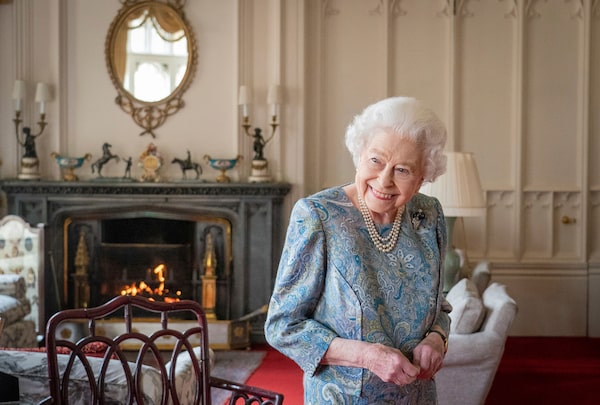
The Queen smiles while receiving the President of Switzerland Ignazio Cassis and his wife Paola Cassis during an audience at Windsor Castle on April 28.Dominic Lipinski/The Associated Press
Elizabeth, the child who was never meant to be Queen, reigned longer than any other British monarch, including her great-great-grandmother Queen Victoria. She spent three score years and more on the throne, presiding, as serenely as possible, over a kingdom lacerated by economic turmoil, social dissension and diminished status – from wartime rationing to pandemic lockdown, precarious recovery and global climate crisis.
The catalogue of challenges she faced as Queen included the Suez Crisis in the Middle East, a redefined Commonwealth of Nations (which now numbers 54 independent countries), the fractious rush to independence by many of her former colonies, Britain’s entry into the European Economic Community and its departure from the European Union nearly half a century later under Brexit. She was on the throne during the Cold War, the end of apartheid in South Africa, the Troubles in Northern Ireland, questionable conflicts in the Falklands and Iraq, military interventions in the former Yugoslavia and the war in Ukraine.
A monarch through good and bad times, she reigned during the lure of North Sea oil, the devolution of Wales, Scotland and Northern Ireland and intermittent economic, humanitarian and sectarian crises – and not least, the headline-grabbing antics of her children and grandchildren.
Read more about her life: Queen Elizabeth II, the monarch of modernity, is gone
Mikhail Gorbachev, 91
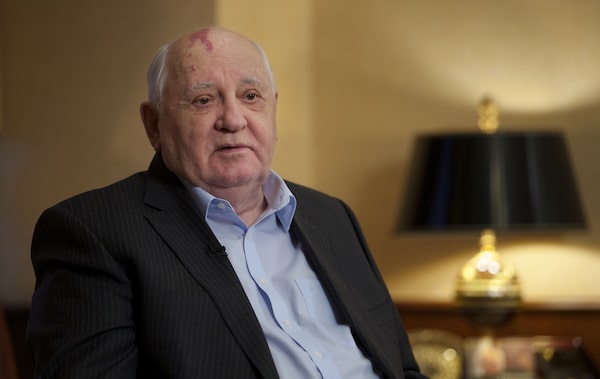
Former Soviet President Mikhail Gorbachev at his foundation's headquarters in Moscow, in December, 2016.Ivan Sekretarev/The Associated Press
Few people shaped modern geopolitics more than Mr. Gorbachev, who ascended to the post of general secretary of the Communist Party of the Soviet Union in 1986 after his two immediate predecessors died within 13 months of each other. A relatively young 54 when he came to office, Mr. Gorbachev was the first and only Soviet leader born after the Russian Revolution of 1917. He opened the country’s closed political and economic system to changes that would eventually explode it.
Mr. Gorbachev’s greatest contribution was to tell the Red Army to stand down when his predecessors would have ordered bloodshed. Soviet troops stood aside as the Berlin Wall fell and other pro-democracy uprisings erupted across Eastern Europe in 1989. As the threat of nuclear war receded, the man affectionately known in the West as “Gorby” was awarded the 1990 Nobel Peace Prize.
Read more about his life: Mikhail Gorbachev, Soviet leader who helped end the Cold War, dies at 91
BobbyLee Worm, 35
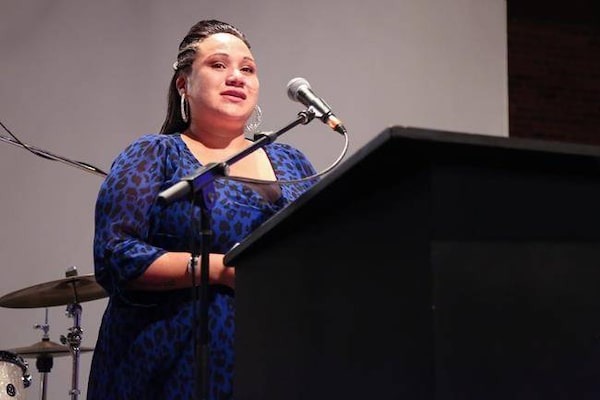
Prison reformer BobbyLee Worm spent three and a half years in solitary confinement.Lenee Son/Handout/The Canadian Press
BobbyLee Worm, a member of the Day Star First Nation in Saskatchewan, had survived 1,123 days in solitary. During that time, she thought of killing herself. She hallucinated and lost hair. She developed an aversion to loud noises and open spaces. During phone calls with her mother, she said she felt small and powerless. The effects would remain with her for the rest of her life.
From that place of helplessness, she would rise to become one of the country’s most prominent and effective prison reformers, working to overhaul the policies and power structures that had conspired to keep her in chains.
Read more about her life: Justice advocate BobbyLee Worm helped end a form of solitary confinement
Pele, 82
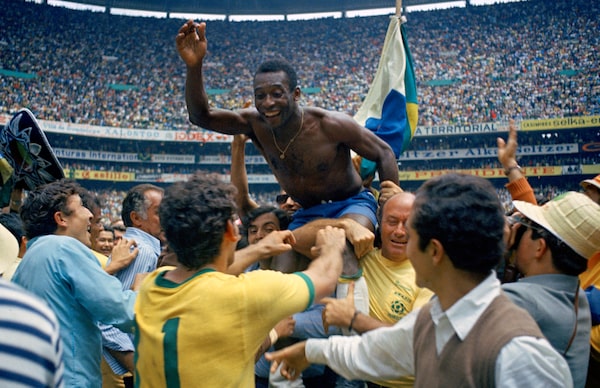
Brazil's Pele is hoisted on the shoulders of his teammates after Brazil won the World Cup final against Italy, 4-1, in Mexico City's Estadio Azteca, June 21, 1970.The Associated Press
Pele wasn’t just the best soccer player in history. Decades after he’d stopped playing, he remained a perfect avatar of the game – bright, brilliant and ageless. When you think of pure joy in sports, no other face leaps so readily to mind.
His style could best be described as everything. Pele did everything you could do with a soccer ball as well or better than anyone else. He was preposterously fast, agile, powerful, as good without the ball as he was with it, two-footed and lethal anywhere within 30 yards in front of goal, and probably behind it. Great players have a special instinct that tells them where to be. Pele knew when to be. The bigger the game, the better he was.
Read more about his life: Brazil’s Pele, one of greatest players in soccer history, dies at 82
Janet Conners, 66
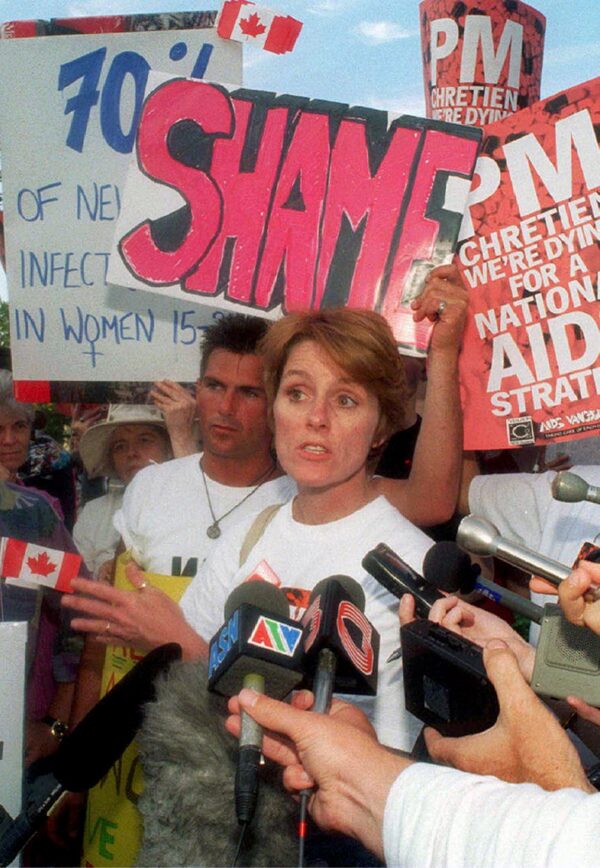
AIDS activist Janet Conners talks to media after her short meeting with Prime Minister Jean Chretien, in Wolfville, N.S., in July, 1996.TONY CALDWELL/The Canadian Press
In 1993, Nova Scotia announced the province would compensate a couple who had contracted HIV from tainted blood. The move, a direct response to the personal and public pleas of Janet and Randy Conners, turned out to be more monumental than anyone could have imagined.
The political dominoes began to tumble, with every province and territory following suit on compensation and the federal government ordering a commission of inquiry – the Krever Commission – that would eventually result in more than $5-billion in compensation, the bankruptcy of the iconic Canadian Red Cross blood program, and complete revamping of how drugs are approved in this country.
While many activists and lawyers were engaged in the fight for justice for thousands of victims of tainted blood, it’s impossible to overstate the role that Ms. Conners played, said Douglas Elliott, a lawyer who served for counsel for the Canadian AIDS Society at the Krever commission.
“Janet broke down the wall of resistance and changed Canada forever,” he said.
Read more about her life: Tenacious activist lobbied for the victims of Canada’s tainted blood tragedy
David Bailey, 77

Dr. David Bailey, shown holding a grapefruit in 2017, was a Canadian Olympic runner and a pharmacologist who made the game-changing discovery that consuming grapefruit juice has an effect on how the body reacts to various medications.Courtesy of Lawson Health Research Institute
David Bailey improved countless lives because of a discovery he made by accident.
In the late 1980s, Dr. Bailey, an Olympic runner-turned-pharmacologist, was researching the effects of alcohol on the blood-pressure medication felodipine. Seeking to disguise the alcohol’s taste in his experiment, he tried combining it with grapefruit juice and stumbled upon the fact that his subjects’ consumption of the juice resulted in a greater concentration of the drug in their bloodstreams. The phenomenon he identified came to be known as the grapefruit effect.
Over the years, Dr. Bailey’s follow-up research determined that grapefruit juice has harmful interactions with some 100 oral medications, with the potential either to cause an overdose or, in some cases, to do the opposite and reduce the drug’s benefit.
As a result, many prescription medicines now carry labels warning patients not to consume grapefruit juice with them.
Read more about his life: David Bailey, Olympian and pharmacologist who discovered the grapefruit effect, dead at age 77
Lydia Dotto, 73
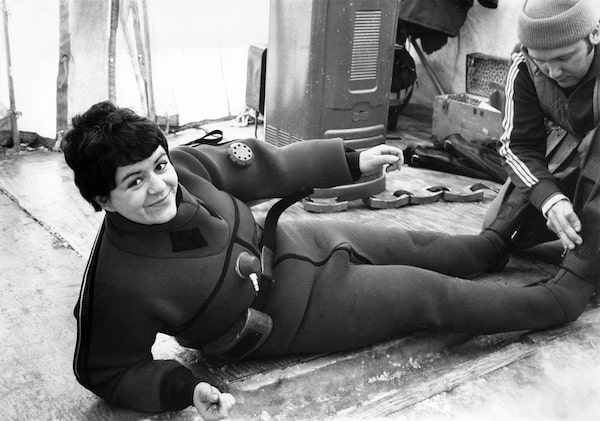
Lydia Dotto getting ready for Arctic dive at Resolute Bay in 1974.Courtesy of the Family
Throughout her career as a writer, Lydia Dotto was determined to get the entire country talking about science. At times that work, first for The Globe and Mail and later as a freelancer and author, led the adventurous reporter into extremely challenging environments.
While on assignment for The Globe in 1973, for example, Ms. Dotto completed two dives under the Arctic ice in Resolute Bay on Baffin Island. A decade later, she participated in a zero-gravity training flight with astronauts at the Johnson Space Center in Houston.
“Her excitement and perspective were contagious in her writing, and helped bring the astronaut and space programs to generations of readers,” retired Canadian astronaut Chris Hadfield said.
Read more about her life: Science reporter Lydia Dotto probed beneath Arctic ice and beyond Earth
Borje Salming, 71

Borje Salming stands at attention during the national anthem prior to the Legends Classic Game at the Air Canada Centre in Toronto, in November, 2011.Bruce Bennett/Getty Images
Borje Salming, a man whose hockey career will be remembered for class, courage, skill and toughness, died five months after he was diagnosed with amyotrophic lateral sclerosis, commonly known as Lou Gehrig’s disease.
A trailblazer for fellow Swedes and other European players who followed him into the NHL, Mr. Salming was the first Swede inducted into the Hockey Hall of Fame, in 1996. He played for the Maple Leafs for 16 seasons beginning in 1973 and for the Detroit Red Wings for one year after that.
The greatest defenceman to don a Toronto jersey, he owns a half-dozen team records and was a six-time all-star during his career.
Read more about his life: Borje Salming: A trailblazer with an unbreakable spirit who did everything
Sister Elaine MacInnes, 98
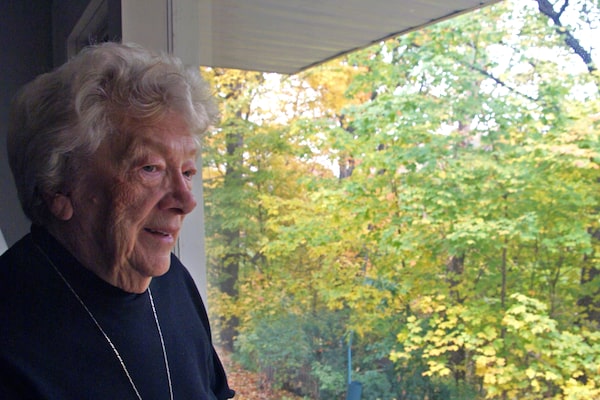
Sister Elaine MacInnes taught Zen meditation and yoga to prison inmates.Ron Csillag
How does a Juilliard-trained concert violinist and Roman Catholic nun wind up as a Zen master who ministered to some of the world’s toughest prisoners?
Few people confounded religious sensibilities the way Sister Elaine MacInnes did. She certainly didn’t mean to. A gentle, soft-spoken and grandmotherly Catholic nun – not remote, austere or inscrutable – she was laser-focused when it came to teaching Zen meditation and yoga to prison inmates and infusing them with a rare serenity.
She saw neither tradition as competing with the other, but as complementary paths. If anything, she said Zen made her a better Catholic and vice-versa, explaining that in Buddhist practice, the word “spirit” more or less equals its meaning in Christianity: “The presence of the sacred within.”
Read more about her life: Catholic nun taught inmates to find freedom through Zen meditation
Guy Lafleur, 70

Former hockey star Guy Lafleur poses next to one of 10 paintings of moments from his career by artist Mario Beaudoin, in May, 2004.PAUL CHIASSON/The Canadian Press
Guy Lafleur skated as smoothly and swiftly as an ice catamaran in a winter gale.
Streaking down the right wing with collar-length hair flowing behind him like a comet’s tail, he raised his stick before suddenly snapping down, the shot as devastating as the hammer on a mouse trap. Many a hapless goalie waved at the puck’s black blur.
The Montreal Canadiens star who was known to English-speaking fans as the Flower, a translation of a venerable family name traceable to feudal France, died at age 70 after a recurrence of lung cancer. In his native French, he was le Démon blond, which better captured his essence.
Read more about his life: Hall of Famer Guy Lafleur, dead at 70, brought flair to the Canadiens in team’s glory years
Sidney Poitier, 94

Sidney Poitier with his honorary Oscar during the 74th annual Academy Awards in March, 2002.Doug Mills/The Associated Press
Sidney Poitier broke through racial barriers as the first Black winner of the best actor Oscar for his role in Lilies of the Field and inspired a generation during the civil-rights movement.
Mr. Poitier created a distinguished film legacy in a single year with three 1967 films at a time when segregation prevailed in much of the United States.
Mr. Poitier had won his history-making best actor Oscar for Lilies of the Field in 1963, playing a handyman who helps German nuns build a chapel in the desert. Five years before that Poitier had been the first Black man nominated for a lead actor Oscar for his role in The Defiant Ones.
Read more about his life: Sidney Poitier, first Black actor to win best actor Oscar, dies at 94
Loretta Lynn, 90

Loretta Lynn performs at the BBC Music Showcase during South By Southwest in Austin, Texas, in March, 2016.Rich Fury/The Associated Press
Loretta Lynn already had four children before launching her career in the early 1960s, and her songs reflected her pride in her rural Kentucky background.
As a songwriter, she crafted a persona of a defiantly tough woman, a contrast to the stereotypical image of most female country singers. The Country Music Hall of Famer wrote fearlessly about sex and love, cheating husbands, divorce and birth control and sometimes got in trouble with radio programmers for material from which even rock performers once shied away.
Her honesty and unique place in country music was rewarded. She was the first woman to be chosen entertainer of the year at the genre’s two major awards shows, first by the Country Music Association in 1972 and then by the Academy of Country Music three years later.
“It was what I wanted to hear and what I knew other women wanted to hear, too,” Ms. Lynn said in 2016. “I didn’t write for the men; I wrote for us women. And the men loved it, too.”
Read more about her life: Loretta Lynn, coal miner’s daughter and country queen, dies at 90
Mike Bossy, 65

Hockey Hall of Famer and former New York Islander Mike Bossy is introduced before an NHL hockey game between the Islanders and the Boston Bruins in January, 2015.Kathy Kmonicek/The Associated Press
Mike Bossy scored in his first National Hockey League game. He scored in his second game. He scored a stunning 20 goals in his first 22 games on the way to a rookie scoring record.
Mr. Bossy kept on scoring through 10 seasons until a chronic back injury forced him from the ice.
One of the most prolific goal scorers in hockey history, Mr. Bossy’s sharpshooting helped his New York Islanders claim four consecutive Stanley Cup championships. He won the Conn Smythe Trophy as the most-valuable player in the 1982 playoffs after the Islanders swept the Vancouver Canucks in the final.
Mr. Bossy possessed quick hands and a sniper’s cold touch. An imperceptible flick of his wrists rifled the puck into a corner of the net. Smooth in every aspect of the offensive game, he was described as a phantom for his ability to pounce suddenly on a loose puck while clear of a rival checker. The deft right-winger scored 50 or more goals in nine consecutive seasons, a feat that eluded even the great Wayne Gretzky, in whose shadow he spent most of his career.
Read more about his life: Mike Bossy, New York Islanders great, four-time Stanley Cup champion, dies at 65
Madeleine Albright, 84
Former U.S. Secretary of State Madeleine Albright takes the stage during the Democratic National Convention in Philadelphia, Penn., in July, 2016.Gary Cameron/Reuters
Madeleine Albright was a child refugee from Nazi- and then Soviet-dominated Eastern Europe who rose to become the first female U.S. secretary of state and a mentor to many current and former American statesmen and women.
A lifelong Democrat who nonetheless worked to bring Republicans into her orbit, Ms. Albright was chosen by former President Bill Clinton to be America’s top diplomat in 1996, elevating her from her post as U.S. ambassador to the United Nations, where she had been only the second woman to hold that job.
As secretary of state, Ms. Albright was the highest-ranking woman in the history of U.S. government. She was not in the line of succession to the presidency, however, because she was a native of Prague. The glass ceiling that she broke was universally admired, even by her political detractors.
Read more about her life: Madeleine Albright, first female U.S. secretary of state, dies
Jiang Zemin, 96
Chinese President Jiang Zemin in Hong Kong.Simon Kwong/Reuters
Jiang Zemin was a former Chinese leader who hastened the country’s embrace of capitalism and repaired ties with the West. He was an obscure Shanghai bureaucrat when he was selected by paramount leader Deng Xiaoping to head the Communist Party – under the older man’s close watch – in the wake of the Tiananmen Square crackdown of June, 1989.
Few expected Mr. Jiang to last long, let alone become a transformational figure.
“He was helicoptered to the top, thrust into this position to everyone’s surprise, probably not least himself,” said David Shambaugh, author of China’s Leaders: From Mao to Now.
But he proved a deft politician, cultivating allies across the party, state-owned enterprises and the military.
Read more about his life: Jiang Zemin, former president who linked China with the world, dead at 96
Olivia Newton-John, 73
Olivia Newton-John rides in the 85th annual Hollywood Christmas Parade in Los Angeles, in November, 2016.Phil McCarten/Reuters
Singer Olivia Newton-John soared to the top of the world’s pop music charts in the 1970s and 1980s with such tunes as I Honestly Love You and Physical and starred in the hit movie musical Grease.
The entertainer began performing as a child and became a global superstar after moving to the United States. She was blond, blue-eyed and brimming with wholesomeness when she had her first hit in 1971 with If Not for You – a Bob Dylan song that also had been recorded by George Harrison.
Ms. Newton-John clinched the Country Music Association’s female singer of the year title in 1974, edging out such homegrown American stars as Loretta Lynn and Dolly Parton. The unlikely success of an Australian performing country-flavoured pop songs bothered many Nashville purists at the time.
Read more about her life: Grease star and pop music icon Olivia Newton-John dies at 73
Irving Abella, 82
Author and labour historian Irving Abella.John Morstad/The Globe and Mail
Irving Abella was a historian and Jewish community leader who wrote groundbreaking work on Canada’s antisemitic immigration policy in the 1930s and 1940s and the resulting decision to shut the door to European Jews fleeing the Holocaust.
None Is Too Many: Canada and the Jews of Europe 1933-1948, co-authored with Harold Troper, created a sensation when it was published in 1982, shattering the myth of Canadian openness to outsiders fleeing oppression. The book also served to influence contemporary Canadian immigration policy, when a new wave of refugees was seeking to escape persecution, this time from Vietnam.
Read more about his life: Historian Irving Abella dies after long illness
Blanche Lemco van Ginkel, 98
Blanche van Ginkel in April, 2020.Courtesy of van Ginkel Archive
Architect, city planner, educator, heritage activist, and the first female dean of architecture in Canada, Blanche Lemco van Ginkel was belatedly recognized as one of the most important figures in 20th-century architecture.
She left a legacy not only as a role model for women in architecture, but also in city planning, education and neighbourhood preservation.
Read more about her life: Blanche Lemco van Ginkel was a key figure in 20th-century architecture
Thich Nhat Hanh, 95
Buddhist monk Thich Nhat Hanh in April, 2007.KHAM/Reuters
Thich Nhat Hanh, the Zen Buddhist monk, poet and peace activist, came to prominence in the 1960s as an opponent of the Vietnam War.
In a majestic body of works and public appearances spanning decades, Thich Nhat Hanh spoke in gentle yet powerful tones of the need to “walk as if you are kissing the earth with your feet.”
As a pioneer of Buddhism in the West, he formed the Plum Village monastery in France and spoke regularly on the practice of mindfulness – identifying and distancing oneself from certain thoughts without judgment – to the corporate world and his international followers.
“You learn how to suffer. If you know how to suffer, you suffer much, much less. And then you know how to make good use of suffering to create joy and happiness,” he said in a 2013 lecture. “The art of happiness and the art of suffering always go together.”
Read more about his life: Thich Nhat Hanh, poetic peace activist and master of mindfulness, dies at 95
Sylvia Fraser, 87
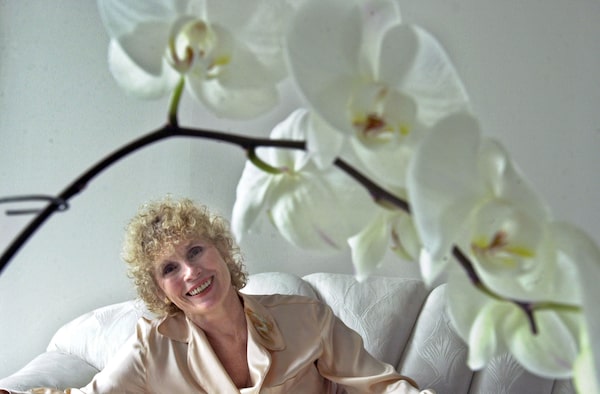
Author Sylvia Fraser at her home in Toronto, in April, 2001Patti Gower/The Globe and Mail
She was a seeker with a mystical bent who tried to find the poetry and magic in life, searching for it in Indian ashrams and the Amazon jungle, as well as in dreams and fantasies and hypnosis. A gifted and hardworking writer, she was equally adept at producing novels, magazine profiles, travel books, books ghostwritten for others, even children’s books. Brave and beautiful, Sylvia Fraser most frequently wrote to understand her own buried childhood experiences, and in the process became a rallying point for others who had suffered sexual abuse in early life.
Beginning in 1972 with Pandora, the story of a girl much like herself up to the age of 7 who is groped by the bread delivery man, she published a spate of novels before writing My Father’s House (1987), a painful memoir of her father’s sexual demands on her starting before she was school age. Her memories, long obscured by amnesia, began to emerge very gradually after her father’s death in 1973, at which point she had not spoken to him for 20 years. The author had to contend with the skepticism of some critics that the events she described really happened.
Read more about her life: Author Sylvia Fraser powerful memoir recounting childhood sexual abuse helped remove the stigma placed on victims
Leslie Vertes, 98
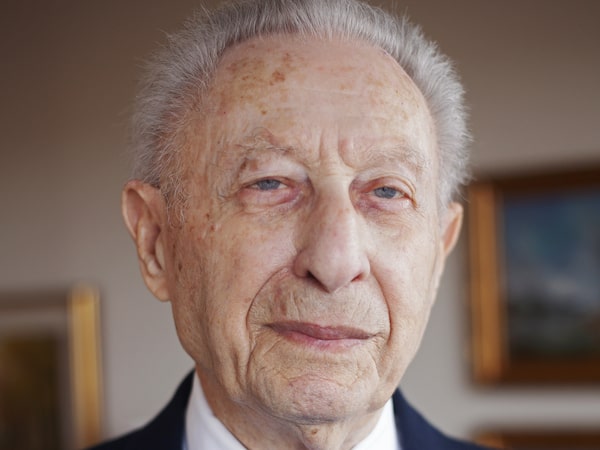
Leslie Vertes at the Montreal Holocaust Museum in 2019.Stéphanie Cousineau/Courtesy of the Montreal Holocaust Museum
Footwear – its manufacture and repair – played a salutary role in the crowded, frenetic life of Holocaust survivor Leslie Vertes.
He learned the useful trade at the hands of his father, who ran a small shoemaking and repair business in Hungary. Thus prepared, he was tasked with shoe and boot repair while serving in a forced labour battalion after Nazi Germany invaded Hungary. He returned to the trade following his release from a Soviet gulag. And in Canada, he found steady work at a shoe factory, eventually rising to management.
In between was a harrowing tale of brutalization, despair, and a degree of toughness rarely seen.
Read more about his life: Holocaust survivor Leslie Vertes endured brutality from the Nazis and the Soviets
Rebecca Godfrey, 54
Rebecca Godfrey, author of Under The Bridge, in August, 2005.Chris Ramirez/The Globe and Mail
The best-selling novelist Rebecca Godfrey wrote a definitive account of the brutal beating death of a Victoria teenager by high school classmates.
Ms. Godfrey immersed herself in the world of the teens from suburban Victoria. They had beaten 14-year-old Reena Virk before knocking her unconscious and leaving her to drown in a saltwater inlet. The author, who spent her own teen years in the city, captured the nuances of seemingly inexplicable teen behaviour by Reena’s tormentors.
Under the Bridge, which was released in 2005 and reissued three years ago, is a riveting, informative and compassionate account of a shocking crime.
Read more about her life: Author Rebecca Godfrey wrote a riveting account of a Victoria teen’s murder